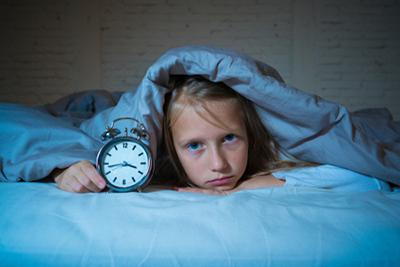
As parents, you're familiar with the nighttime rituals of lullabies and bedtime stories, but what happens when those tender moments turn into hours of tossing and turning? Childhood sleep disorders can cast a shadow over a child's well-being, affecting their mood, behavior, and overall development. Identifying the symptoms and seeking treatment is paramount in ensuring our little ones get the rest they need to thrive.
The first step in addressing childhood sleep disorders is recognizing the signs. While occasional night awakenings are OK, persistent difficulties falling asleep, staying asleep, or waking up too early could signal a deeper issue. Pay attention to your child's behavior during the day as well – excessive daytime sleepiness, irritability, or difficulty concentrating may relate to poor sleep quality at night.
Childhood Sleep Disorders: Identifying Symptoms and Seeking Treatment
One common sleep disorder in children is insomnia, characterized by difficulty falling or staying asleep. It can stem from various factors such as stress, irregular bedtime routines, or underlying medical conditions. Another prevalent disorder is sleep apnea, where breathing pauses during sleep disrupt restfulness and can lead to daytime fatigue and behavioral problems.
Restless legs syndrome (RLS) and periodic limb movement disorder (PLMD) are also worth noting. Children with RLS experience uncomfortable sensations in their legs, often described as tingling or crawling. PLMD involves repetitive leg movements during sleep, potentially causing disruptions in the sleep cycle.
If you suspect your child is struggling with a sleep disorder, don't hesitate to seek professional guidance. Consulting with a pediatrician or a sleep specialist can provide valuable insights and recommendations tailored to your child's needs. Keep a sleep diary documenting your child's sleep patterns, habits, and associated symptoms to assist in the diagnostic process.
Treatment options vary depending on the specific sleep disorder and its underlying causes. Establishing a consistent bedtime routine and creating a sleep-conducive environment can promote better sleep hygiene if you have insomnia. Cognitive-behavioral therapy may also be beneficial in addressing underlying psychological factors contributing to sleep difficulties.
Visit Our Pediatrician To Support Your Child’s Sleeping Habits
Visit a pediatrician if your child consistently struggles to fall or stay asleep and experiences frequent nightmares, sleepwalking, or bedwetting beyond age 5. Seek help if sleep disturbances disrupt daily functioning, cause excessive daytime sleepiness, mood changes, or behavioral issues.
Consult if there are underlying medical conditions, developmental delays, or if sleep problems persist despite trying behavioral interventions. Symptoms warranting medical attention are if your child snores loudly, experiences pause in breathing during sleep, or displays restless legs syndrome.
Please explore our website to learn about the conditions we treat and the services provided. Call our office to speak with our board-certified pediatrician regarding diagnosis and treatment for childhood sleep disorders.